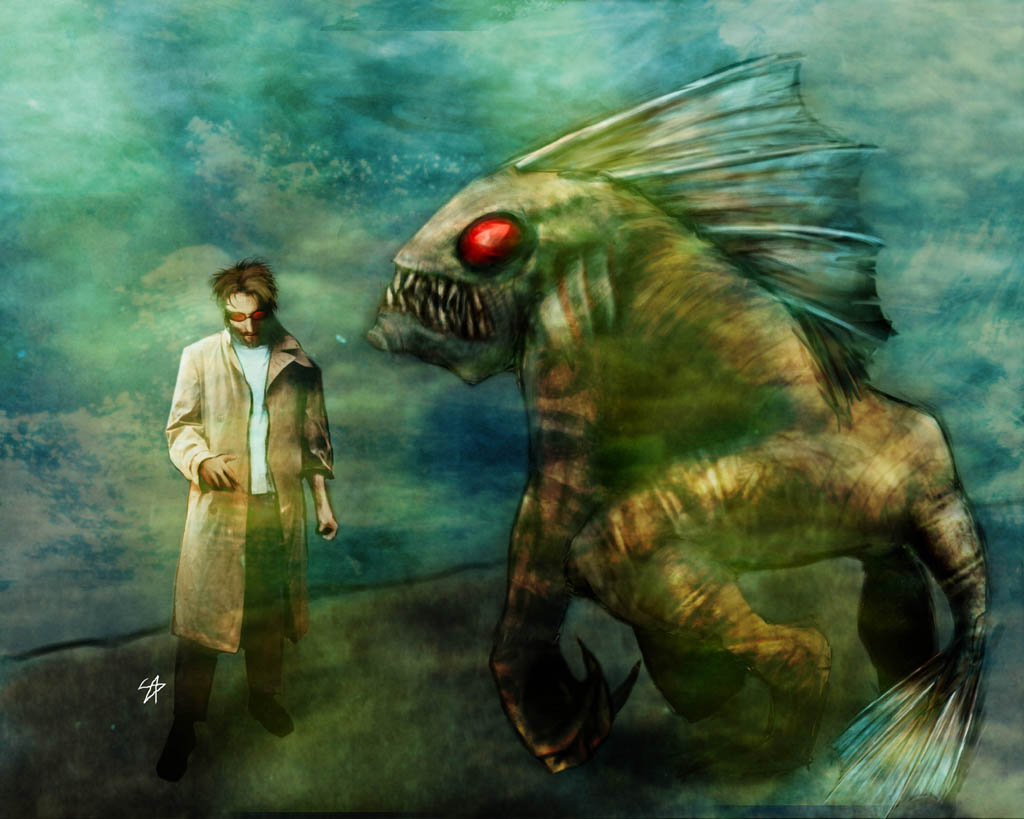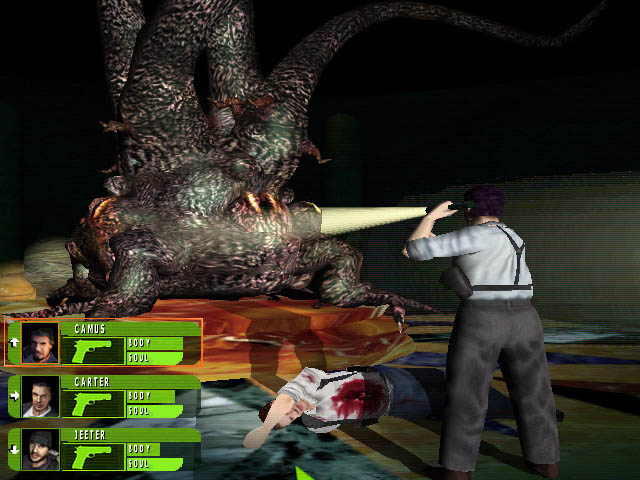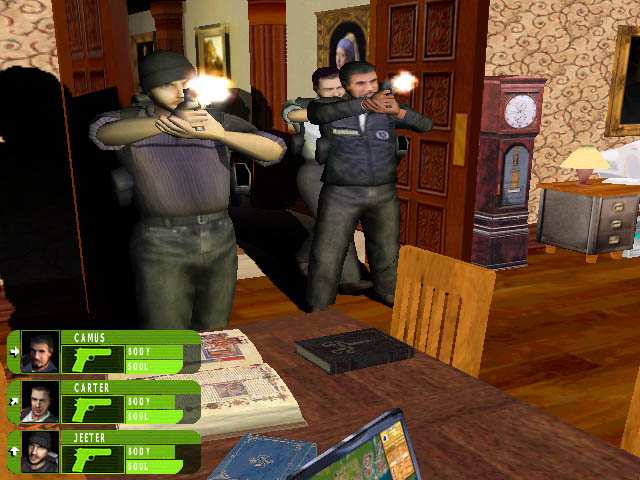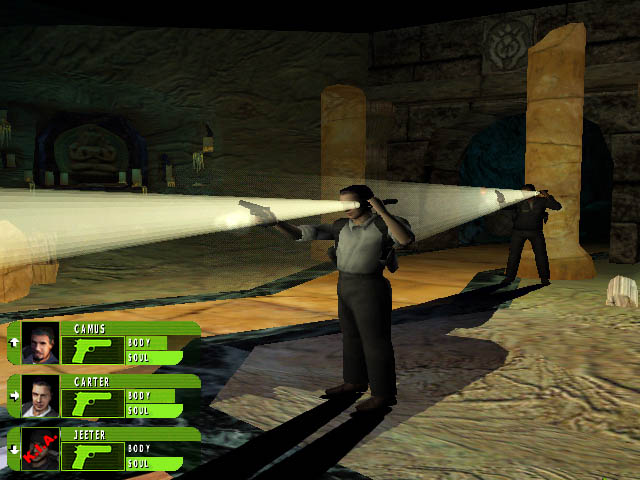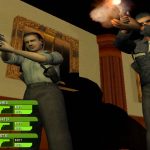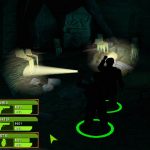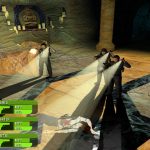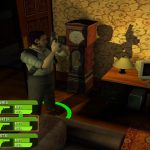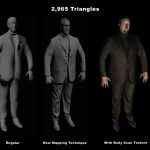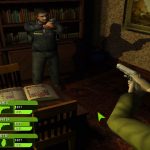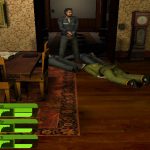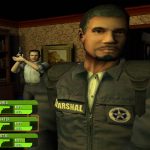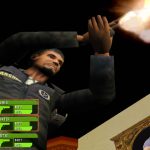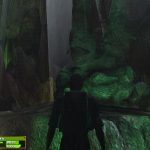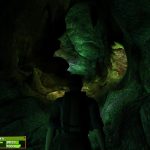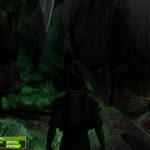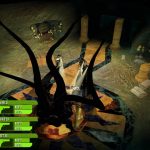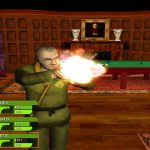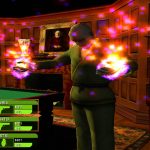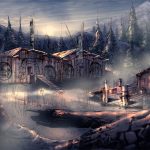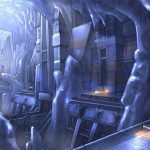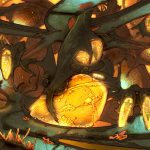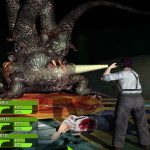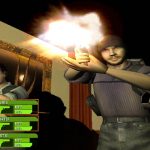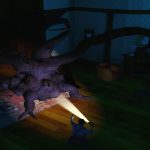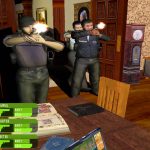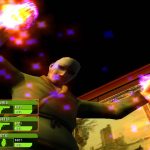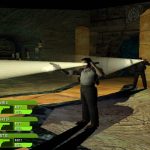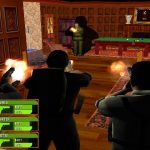Delta Green is a cancelled horror / strategy game in development by Flying Lab Software from 2001 to 2003. It was going to be an adaptation of the setting of the same name for the tabletop Role Playing Game “Call Of Cthulhu”, based on the writings of H.P. Lovecraft. Even at the time Lovecraft’s novels were quite popular for video game adaptations, both released and unreleased.
Although the main Call Of Cthulhu tabletop RPG campaign takes place mostly in the 1920’s, the Delta Green setting puts players into modern times, in the shoes of agents of the fictional U.S. secret organization of the same name. Their mission is to deal with aliens and paranormal investigation, keeping their existence a secret from the public. This would be often done ruthlessly and by any means necessary, throwing conspiracy fiction into the horror formula of the Cthulhu mythos.
Flying Lab (a Seattle-based studio) was collaborating with the creators of the tabletop game, Dennis Detwiller, Adam Scott Glancy and John Scott Tynes (with the latter being brought in as a member of the studio and serving as lead designer) in order to bring Delta Green to life as faithful as it could be to the source material. Whole new characters and stories were written exclusively for the video game, and apparently these ideas would end up being used in the tabletop game itself later on, as this adaptation would have been considered canon.
Although the tabletop game focuses on role-playing, the video game would translate into a strategic and tactical experience. Initially development focused on delivering an X-Com-like feel and style of control, with the player ordering a squad of agents from an isometric camera angle. One or more characters could be selected at once, given a command, and they would carry out the order. However, it was decided later in development that this approach was not enough, and the scheme was changed to a third-person camera angle, with each team member being able to be controlled directly if the player so wished, with orders given through an on-screen “playbook” and prompts. This gameplay style would probably have been similar to later strategy games such as Valkyria Chronicles, with the major difference being that Delta Green would play in real-time.
The similarities with X-Com wouldn’t end here, however: Delta Green was to feature a planning aspect between combat, with the player being able to recruit agents and allies as they see fit by spending resources. You could also upgrade the organization’s effectiveness through research. For example, a first encounter with a monster might have ended with the agents’ weapons being completely ineffective against it: a better tactic would be to focus on collecting a sample from the enemy and bringing it back for analysis. This would result in a squad that would now be better prepared to deal with the new threat and could come back with new weapons to deal with it. But of course, once the team returns to that area, they could be facing groups of enemies that are now more prepared to deal with them as well.
With any game built around strategy and tactics, A.I. was a very important aspect for Delta Green and Flying Lab were aware of this. One of their major focuses during development was to create an A.I. that would not frustrate players, fully capable of taking action by itself. Agents in Delta Green would be aware of their surroundings and would act with a certain degree of autonomy. They would take cover when under attack, hold their fire until their teammates were safely out of the way and coordinate their actions when carrying out an order (such as breaching a room). This would eliminate micromanagement, leaving the player to simply provide macro-tactics and decide how to approach a problem, letting the A.I. agents doing the rest.
On the horror front, Flying Lab wanted to keep the game consistent with the Cthulhu vibe. This meant keeping the actual monsters and horrors to a minimum, as they thought slaying creatures that are supposed to terrify you in large numbers only causes their impact to be heavily diminished. With this in mind, most of the enemies the player would encounter would be cultists, humans driven mad by old, demonic deities who would employ everything from conventional firearms to magic and artifacts against them.
The environments would evolve based on this philosophy as well, with early levels taking place in the easily recognizable real world (such as run-down subway stations and apartment buildings), but progressively being replaced with more bizarre and supernatural locations. The latters would include the submerged cities of the Deep Ones and even an alien base on the Moon, which would feature artificial gravity and navigation on geometrically impossible structures inspired by the works of M.C. Escher.
To help build this effective horror atmosphere, Delta Green was going to be powered by a modified LithTech Jupiter engine, developed by Monolith for their upcoming game No One Lives Forever 2. Inspired by the early looks the public got into Doom 3 and Halo 2 during the time of Delta Green’s development, Flying Lab licensed Jupiter in order to add cutting-edge lighting and character models to their game. This tech would be used for some interesting gameplay mechanics, for example a certain type of monster was able to disguise itself as a member of the team and would be completely indistinguishable from a human, with the exception of the shadow they cast. Flying Labs would also employ a bit of trickery in order to achieve high fidelity models: they took a 300.000 polygon model, created a lighting map for it, and then simplified the model back to around 3.000 polygons. By putting the original lighting map on top of this lower quality polygon map and letting pixel shaders do all the work, it would cast lighting on the geometry without it actually being there. This would create models that looked extremely detailed, but not nearly as resource intensive. Tynes would describe the results of this technique at the time as “the most realistic playable characters ever seen in a game, period.”
But the excitement was not meant to last. Flying Lab was aiming for a 2003 release for Delta Green: throughout the summer of 2002 they were in talks with several publishers in order to try to bring the game to the public. But what started off as a small PC exclusive eventually grew enough that it got in the Xbox Incubator program as well. This allowed prototypes to be easily created for the Microsoft console using standard PC tools. It seems Microsoft took an interest in Delta Green, but at some point backed out of the deal. It could be assumed that nobody else ended up picking up Delta Green for publishing unfortunately. Because of this the game never entered full production, despite the LithTech Jupiter engine allowing it to develop ahead of schedule.
At the same time Flying Lab was working on another game, Pirates Of The Burning Sea, an MMO set in the Golden Age Of Piracy that was eventually released in a beta testing state in December 2005, and officially released in 2008. From what can be pieced together, it seems Flying Lab chose to focus on their MMO after hitting trouble with Delta Green, and the game was shelved indefinitely at the beginning of 2003. Although Flying Lab hoped they could come back to the project at some point, it seems that never happened and Delta Green was never heard from again.
Flying Lab would continue to develop Pirates Of The Burning Sea for years to come, but would eventually go out of business sometime around 2012, when their publisher (Sony Online Entertainment) dropped the MMO from their catalog. Former members then founded another studio, Portalus Games, which continued maintaining the game until 2018 with a shrinking team, when they also closed doors. The game remains alive, but managed by a whole different company, Vision Online Games, with Flying Lab’s influence long gone from its virtual world.
Article by thecursebearer, thanks to Majiki for the contribution!
Images:
Videos:
What do you think about this unseen game? Give your vote!
Would you like to add more info, screens or videos to this page? Add a comment below!
- Quark (Quantic Dream) [Dreamcast – Cancelled] - 24-03-2024
- Fortris [PC/Playstation/Dreamcast – Cancelled] - 09-03-2024
- Gorkamorka [PC / Dreamcast – Cancelled] - 16-12-2023

